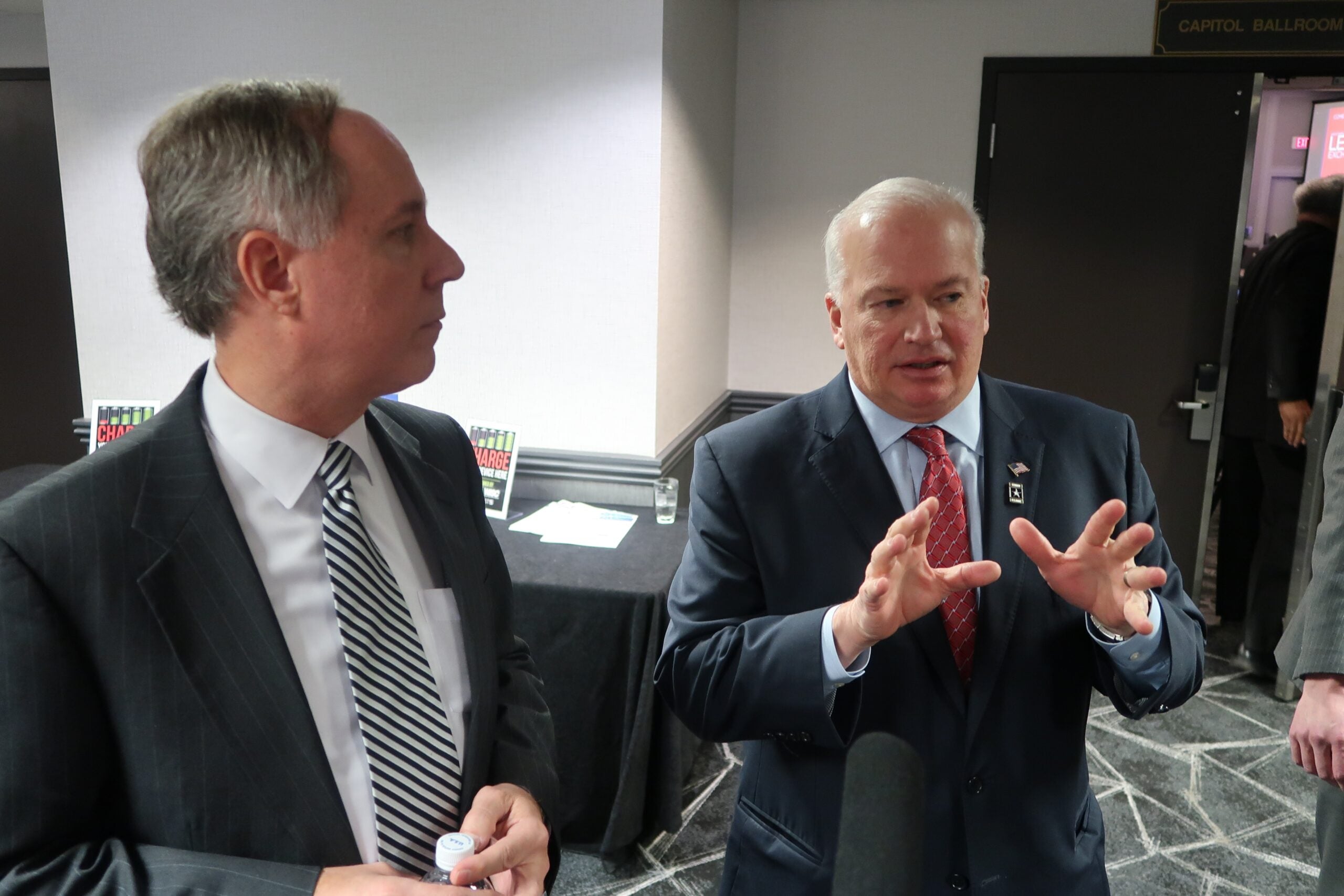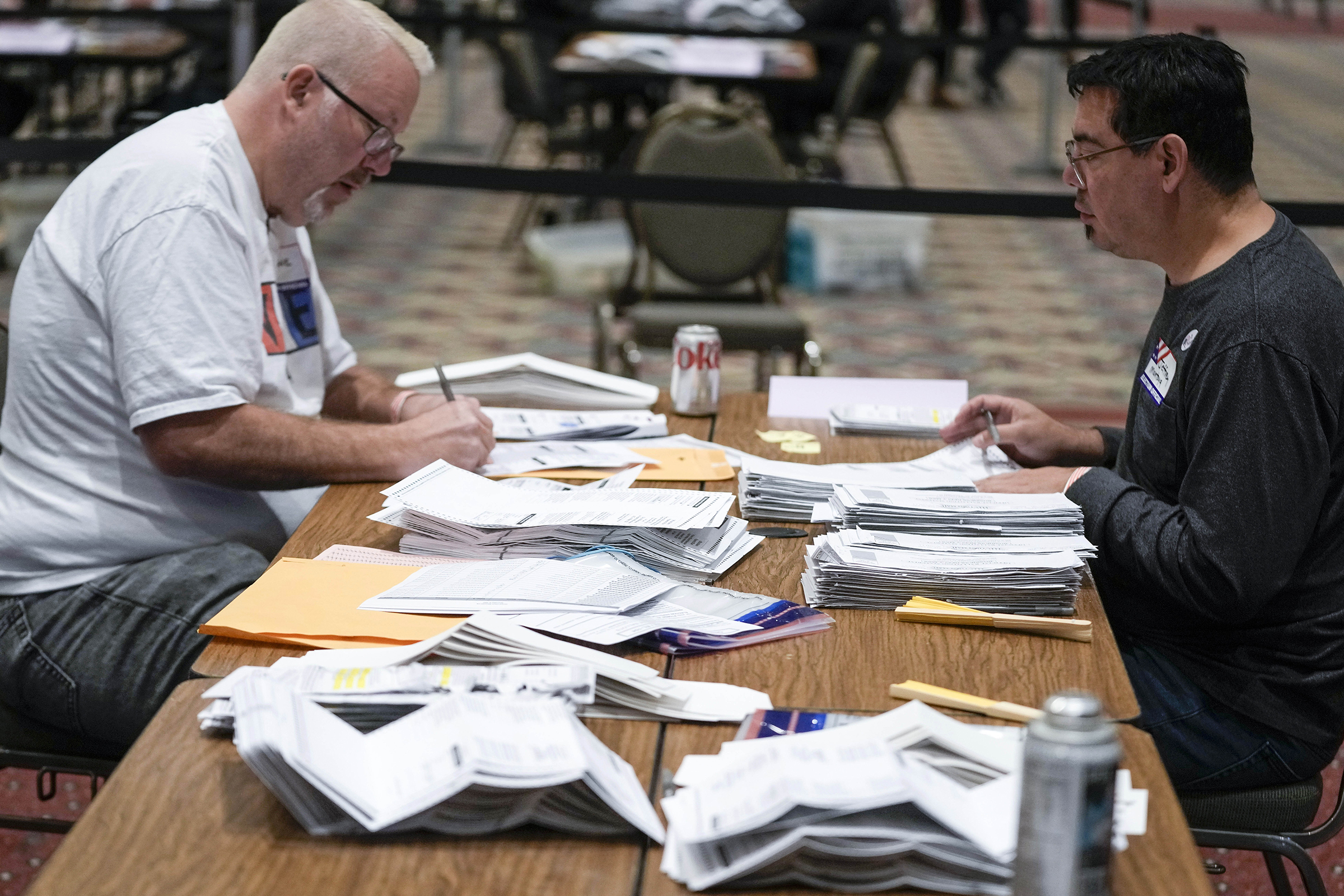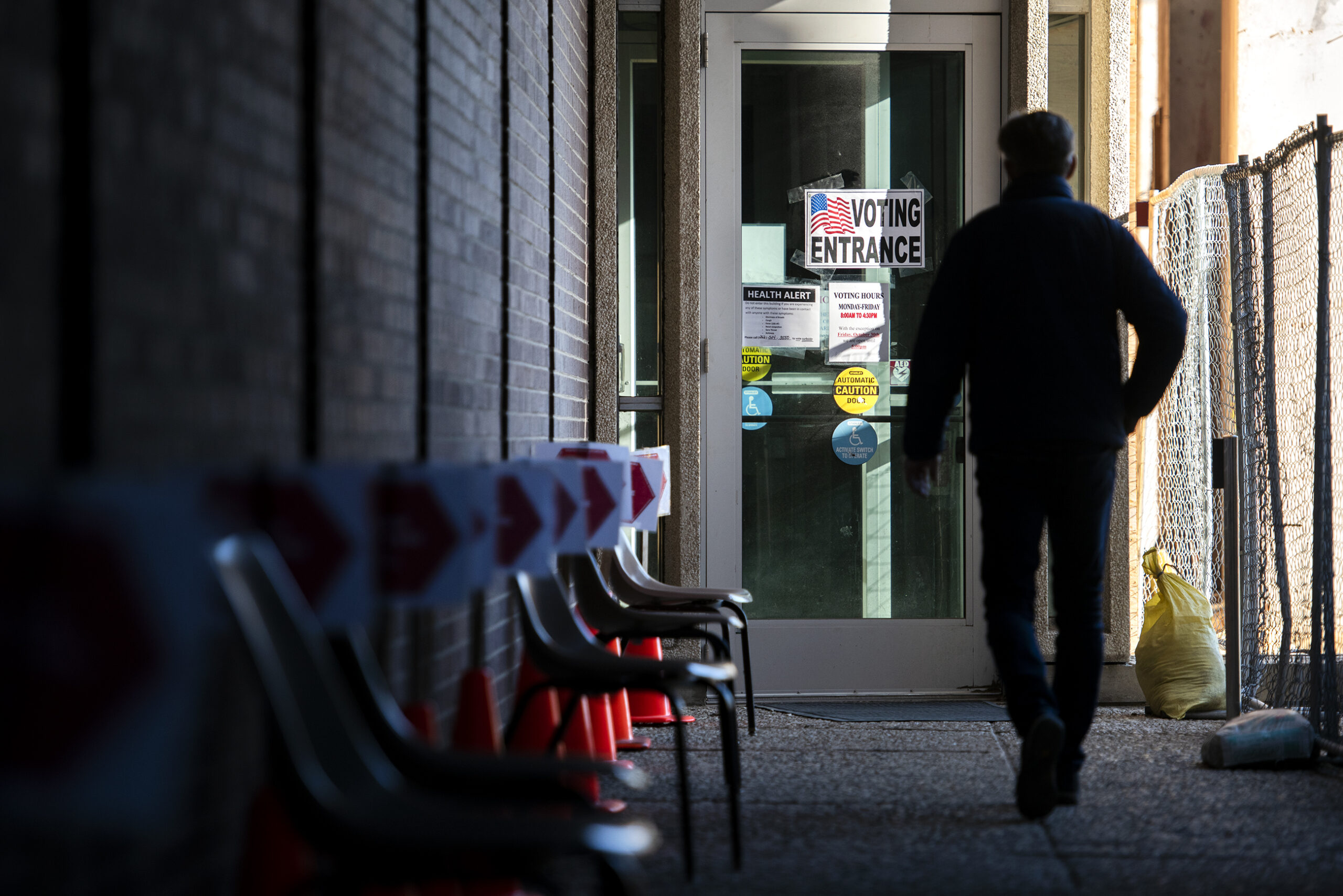Republican legislative leaders immediately adjourned a special session called by Gov. Tony Evers to consider a plan to conduct the spring election by mail, and they’re planning to appeal other election changes to the U.S. Supreme Court.
Evers, a Democrat, called a special session of the Legislature for 4 p.m. Saturday. By 4:05 p.m., the session was adjourned until Monday, though legislators signaled they didn’t plan any action then, either.
Here’s what today’s special session on the election looked like in the state Senate –> https://t.co/JmH5FUUC8J
— Laurel White (@lkwhite) April 4, 2020
Stay informed on the latest news
Sign up for WPR’s email newsletter.
Although the Assembly was adjourned until 10 a.m. Monday, the chief of staff for Assembly Majority Leader Jim Steineke, R-Kaukauna, said Saturday he doesn’t anticipate a virtual meeting of lawmakers Monday.
Evers: State Lawmakers ‘Playing Politics’ For Adjourning Special Session
Evers released a statement Saturday night criticizing the Legislature for convening and adjourning a special session charged with taking action on the spring election.
He wrote, “Republicans in the Legislature are playing politics with public safety and ignoring the urgency of this public health crisis.”
Republicans in the Legislature are playing politics with public safety and ignoring the urgency of this public health crisis. It’s wrong. No one should have to choose between their health and their right to vote.
— Governor Tony Evers (@GovEvers) April 4, 2020
“It’s wrong. No one should have to choose between their health and their right to vote,” he wrote.
The Democratic governor has asked the Republican-controlled Legislature to delay the April 7 election amid the ongoing coronavirus pandemic, calling it an “easy decision.”
“It’s time for every Republican legislator to do their jobs and take a vote on this commonsense proposal to extend the election date so everyone can vote safely from home. I urge every Wisconsinite to contact their legislators and demand a vote,” he wrote.
GOP Leaders Plan Appeal To US Supreme Court
The empty legislative session follows a week of intense back and forth over how to conduct Wisconsin’s spring election, scheduled for Tuesday, in the midst of a pandemic.
On Friday, a federal appeals court ruling blocked some of the election orders put in place last week by a fedearl judge, and upheld others.
Responding to state measures intended to slow the spread of the deadly COVID-19 virus, federal Judge William Conley granted Wisconsin clerks additional time to receive and tally absentee ballots, ruling the deadline for the ballots would be Monday, April 13 rather than the scheduled April 7 Election Day. On Friday night, the federal 7th Circuit Court of Appeals upheld most of the order, but struck a portion that would have permitted clerks to count absentee ballots that lacked a witness signature.
State Senate Majority Leader Scott Fitzgerald, R-Juneau, and Assembly Speaker Robin Vos, R-Rochester, issued a statement indicating they’ll seek even stricter limits on absentee balloting, as clerks across the state face the prospect of tallying more than a million absentee ballots in total.
“We accept that clerks need more time to count ballots,” the statement said. “We still have grave concerns about election security by allowing votes to be postmarked or submitted after Election Day, and plan to appeal that issue to the United States Supreme Court.”
Neil Albrecht, director of the Milwaukee Election Commission, said a reversal of the judge’s extension would have “tremendous consequence to voters across the state,” and in particular on large cities that struggled to meet the massive spike in absentee ballot requests. He pointed out that some voters waited more than a week to receive their absentee ballots.
“I don’t think they should be disenfranchised due to the dynamics of administering an election in the midst of a pandemic, and some of the slowdowns that can create,” Albrecht said on a Saturday call with reporters. “I’m hopeful this state, as it should, can move forward with that April 13 deadline” for voters to return absentee ballots.
“Any type of a reversal on that extension … would further compromise the integrity of this election,” Albrecht said.
Most municipalities in the state are experiencing shortages of poll workers, and the shortages are critical in many places, a survey by the Wisconsin Elections Commission found. The number of polling places has been severely curtailed in the state’s largest cities, raising the prospect that voters will face long lines and unsafe conditions on Tuesday.
Editor’s note: Laurel White and David Hyland contributed to this report.
Wisconsin Public Radio, © Copyright 2025, Board of Regents of the University of Wisconsin System and Wisconsin Educational Communications Board.




